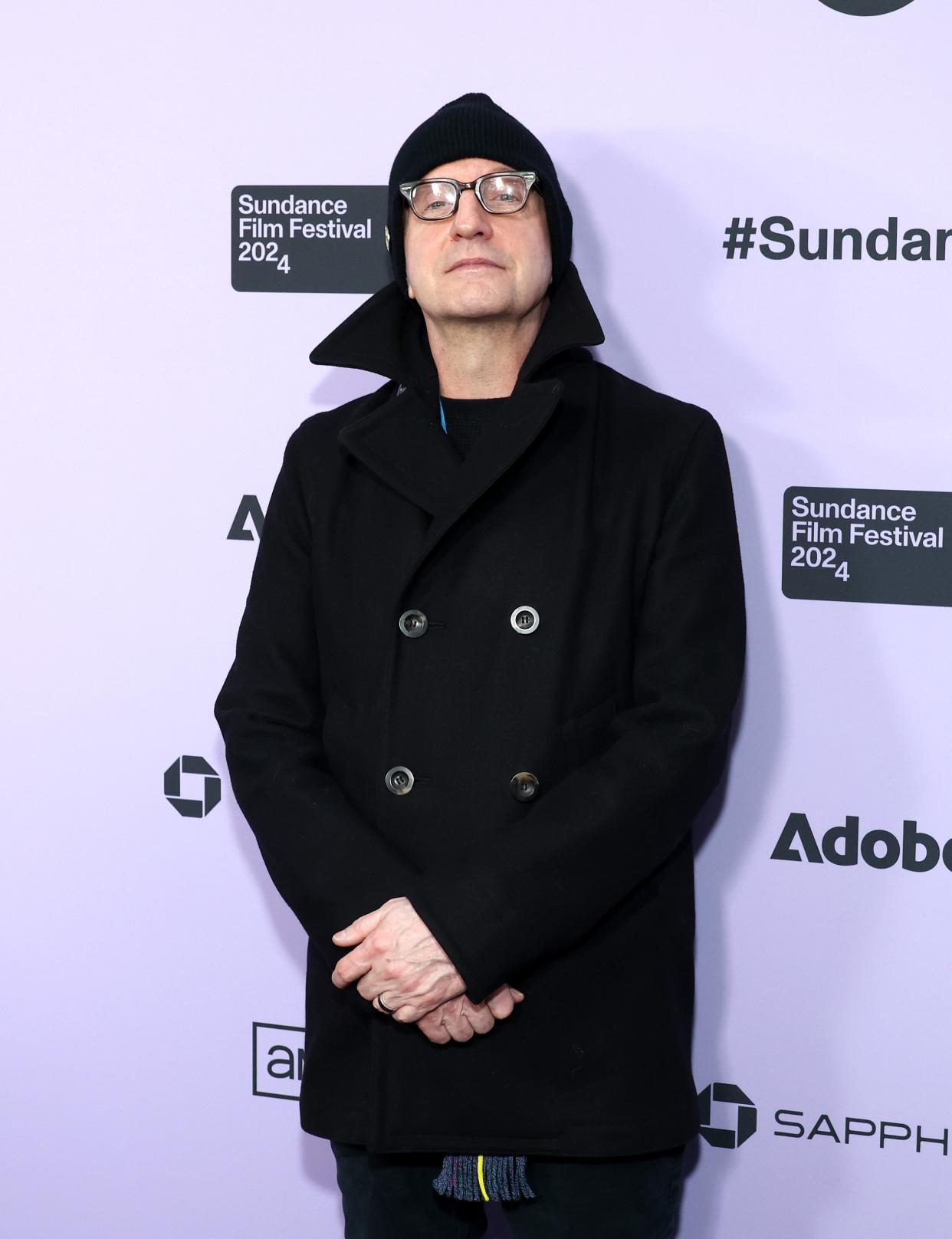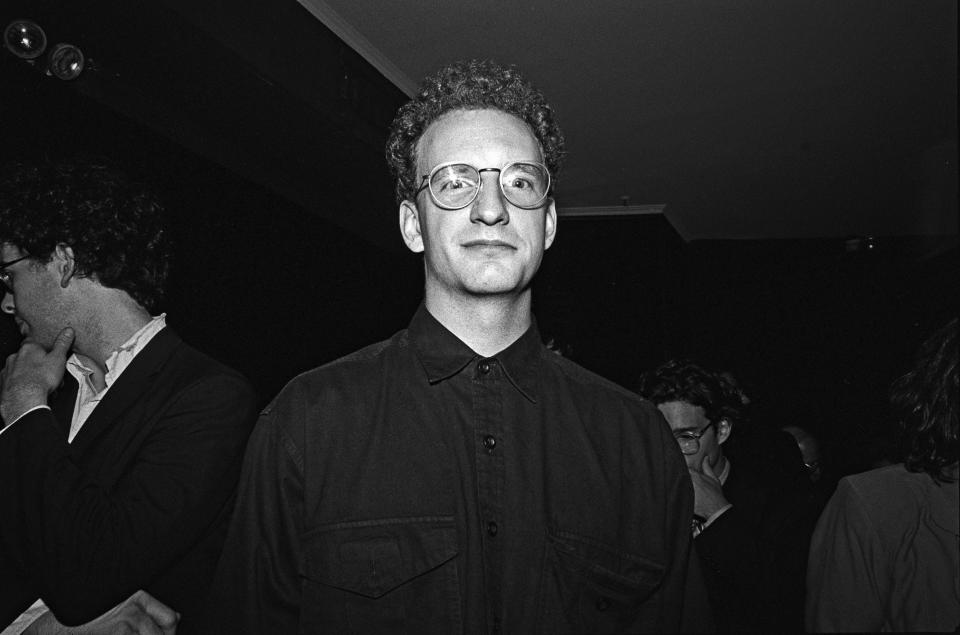With Presence , a Hit Sundance Ghost Story, Steven Soderbergh is the Toast of His Old Haunt

- Oops!Something went wrong.Please try again later.
- Oops!Something went wrong.Please try again later.
Matt Winkelmeyer/Getty Images
When it premiered at the Sundance Film Festival in 1989, sex, lies, and videotape announced its director, Steven Soderbergh, as a prominent new voice. But Soderbergh’s dialogue-heavy drama—which the 26-year-old filmmaker wrote in eight days and shot with $1.2 million in financing—presented a soon-to-be-booming American independent-movie scene with a roadmap for small-budget success and distribution. Several months after it became the toast of Park City, sex, lies won the Palme D’or at Cannes and blossomed into a $24 million box-office hit (for a fledgling independent studio called Miramax) that helped put Robert Redford’s nascent festival on the map. The following year, Soderbergh earned an Oscar nomination for best original screenplay.
Thirty-five years later, Soderbergh has crashed Sundance’s 40th anniversary with Presence, a sleek and slender ghost story that continues the prolific director’s attempts to push the boundaries of form, technique, and perspective. After making its world premiere over the weekend, the movie has quickly accrued its own spooky mythos—according to a report in Variety, the first screening prompted a couple of frightened walkouts and had cast members seeing it for the first time on the edge of their seats. Though there will likely be differences in opinion when the movie gets released—Neon snapped up the worldwide rights on Wednesday morning— Presence is more unnerving than flat-out scary, saving its jolts for a jarring ending that makes you rethink everything you’ve just watched. It’s one of the best offerings of the festival.
On its surface, the plot’s haunted-house conceit sounds pretty basic. For 85 taut minutes, Presence follows a family of four as they move into a large, three-bedroom home and grapple with deep-seated issues. There’s a lingering tension between spouses Rebecca (Lucy Liu) and Chris (Chris Sullivan ) as well as their teenage siblings Tyler (Eddy Maday) and Chloe (Callina Liang), who struggle to overcome their incompatible personalities. In between arguments and silent dinners, eerie things keep happening—books get moved, doors close at will, and large shelves crash to the floor—that might seem like uninspired tropes. Except for the primary twist: Soderbergh has chosen to film everything from the point of view of the house’s spectral entity, which hovers between bedrooms, floats up and down the stairs, and observes (and partially contributes to) the domestic drama.
At least for the first half of the movie, the roaming viewpoint—shot with lightweight digital cameras and wide, 14-mm lenses—operates like an invisible eavesdropper, following and listening into conversations and arguments taking place. There is no initial menace or intent to harm, and only Chloe can sense something lurking. Unlike the rest of her family—and specifically her overachieving athletic brother—Chloe is an introverted homebody still grappling with the recent overdoses of her two school friends, and her psychological state is perhaps making her more sensitive to whatever visits her room. It’s possible this spirit is benevolent (similar to the cloaked paranormal protagonist in David Lowery’s A Ghost Story), but the camera, whether it’s hiding in the closet or shaking above the bed, keeps its intentions close to the vest.

Stephen Soderbergh
In a recent interview with Liang, the young actor explained that Presence was shot last September for just 11 days (some of which were half days) with a SAG-AFTRA waiver. The streamlined and stripped-down process has almost become a Soderberghian hallmark, perhaps a testament to his incessant desire to create at a rapid and unrelenting pace, and for the way he sees limitations as the greatest source of inspiration and ingenuity. Within the last year, he’s directed Magic Mike’s Last Dance, the Max series Full Circle, and the Michael Cera-led television project Command Z. With any other director, that might suggest a dip in quality or prompt cause for concern. Not for Soderbergh.
Still, despite his experimental streak, the filmmaker never imagined that a first-person movie (think: Hardcore Henry) would ever work or catch on, believing audiences would rather watch reverse angles of two people talking as opposed to someone spinning their head back and forth. Then he came to a realization: “I’m like, the only way to do it is you never turn around,” he told the Sundance audience after the movie’s premiere. That led to another innovative choice. Working as his own cinematographer under a familiar pseudonym, Soderbergh wore martial arts slippers to stay silent as he glided around the house. One of the biggest accomplishments of Presence is that it never feels like a dizzying roller-coaster ride. By maintaining a ghost’s smoothed-out omniscience, the family’s escalations and freakouts (like when a hired medium visits the living room) come off even more striking.
Though the shooting style might be new, the movie’s themes fit familiarly into Soderbergh’s own recent canon. Like the anxious set of friends aboard a confined cruise ship in the Let Them All Talk and the paranoid heroine locked in quarantine in Kimi (written, like Presence, by David Koepp), the movie’s supernatural protagonist never floats outside the house walls. Those contained choices have become one of the comforts of watching his movies, and it gives Koepp more room to provide clues and flesh out characters—especially one of Tyler’s menacing friends whose arrival cranks up the nerves—as you adjust to and anticipate the unique layout and design of the house. “I love confinement,” Soderbergh said in the same Q&A. “I love when a story takes place in one place or a short period of time, or you set up arbitrary rules for yourself that confine you.”
Since calling off his brief retirement seven years ago, Soderbergh has become a particularly insightful thought leader regarding the present and future state of movies. As someone whose success helped open the door for other American independents like Quentin Tarantino and Wes Anderson, he has continued to beat the drum—mostly by whipping together thoughtful, engaging movies through various streaming deals—about ways to get more eyeballs on the young and emerging filmmakers of right now. This latest Sundance entry likely won’t have the same impact as sex, lies, and videotape, and depending on who picks it up, it may not even reach theaters. But it’s fitting that Soderbergh keeps returning to Park City, eager to keep testing and pushing audiences into new directions with smart, efficient storytelling. Even smaller genre exercises like this deserve to be seen big.
Originally Appeared on GQ

